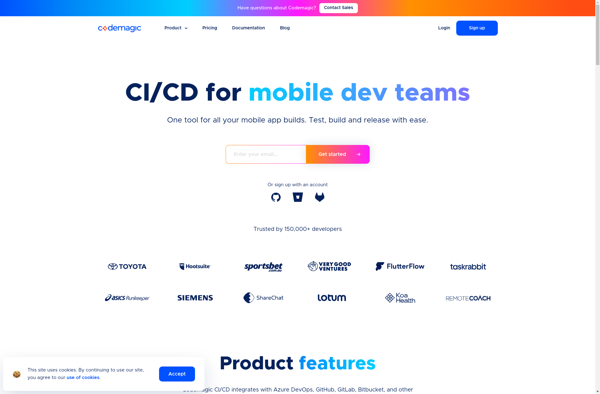GreenhouseCI
GreenhouseCI is a continuous integration and delivery platform designed for software engineering teams. It automates building, testing and deploying applications to help deliver higher quality code faster.
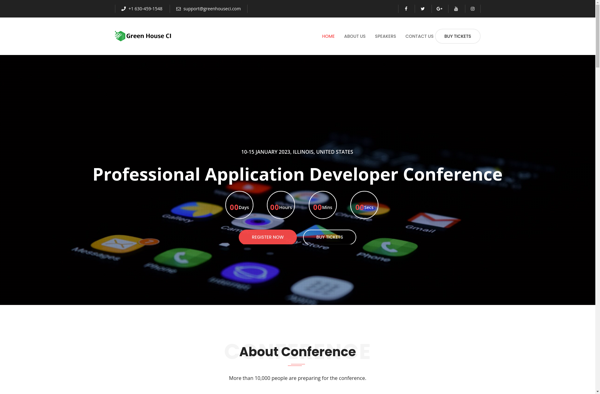
GreenhouseCI: Continuous Integration and Delivery Platforms
Automate building, testing and deploying applications with GreenhouseCI, a software engineering team's best friend for delivering higher quality code faster.
What is GreenhouseCI?
GreenhouseCI is a cloud-based continuous integration and delivery (CI/CD) platform that helps software teams automate building, testing, and deploying their applications. Some key capabilities and benefits of GreenhouseCI include:
- Automated build pipelines - Configure pipelines with steps to compile code, run tests, security scans, generate artifacts like containers, and deploy to any environment.
- Support for all languages and platforms - Build pipelines for Java, .NET, Node.js, Android, iOS etc. Integrates with GitHub, Bitbucket.
- Parallel testing - Run tests in parallel to reduce test execution time. Integrates with testing frameworks like JUnit, NUnit, Selenium etc.
- Deploy to any cloud - Deploy applications to AWS, Azure, Google Cloud, Kubernetes and more with pre-built integrations.
- Scalability - GreenhouseCI scales build infrastructure dynamically based on load, optimizing speed and cost.
- Insights and visibility - Dashboards show key metrics across pipelines about build status, quality, duration and more.
- Team management - Add and manage team members and control access across multiple projects.
In summary, GreenhouseCI is designed to help engineering teams adopt CI/CD best practices, release higher quality code faster, and operate more efficiently at scale.
GreenhouseCI Features
Features
- Automated build, test and deployment pipelines
- Integrations with GitHub, Bitbucket, GitLab
- Parallel test execution
- Artifact management
- Role-based access control
- REST API
- CLI access
- Docker support
- Kubernetes support
Pricing
- Freemium
- Subscription-Based
Pros
Easy to set up and configure pipelines
Good integration with popular code repositories
Scalable test execution
Flexible deployment options
Access controls for teams
APIs allow automation and custom integrations
Free tier available
Cons
Less flexibility than self-hosted options like Jenkins
Can get expensive for larger teams
Missing some advanced features of competitors
Vendor lock-in
Official Links
Reviews & Ratings
Login to ReviewThe Best GreenhouseCI Alternatives
Top Development and Continuous Integration & Delivery and other similar apps like GreenhouseCI
Here are some alternatives to GreenhouseCI:
Suggest an alternative ❐Jenkins
Jenkins is an open source automation server that enables developers around the world to reliably build, test, and deploy their software. It provides continuous integration and continuous delivery capabilities out of the box with hundreds of plugins to support building, deploying, and automating any project.Jenkins can be used as a...
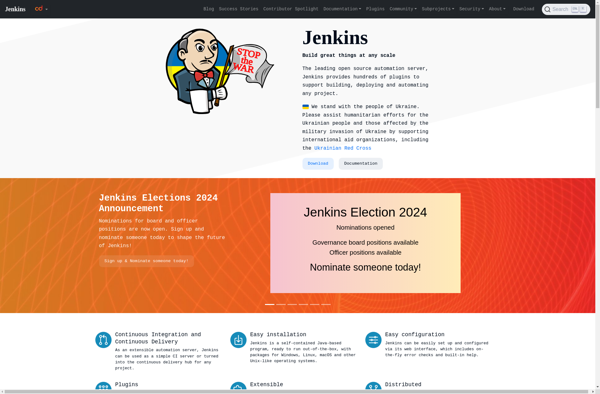
Travis CI
Travis CI is a popular continuous integration platform that is designed specifically for building and testing software projects hosted on GitHub. It provides a free plan for open source projects hosted on GitHub, making it a popular choice for developers working on open source software.Here are some key things to...
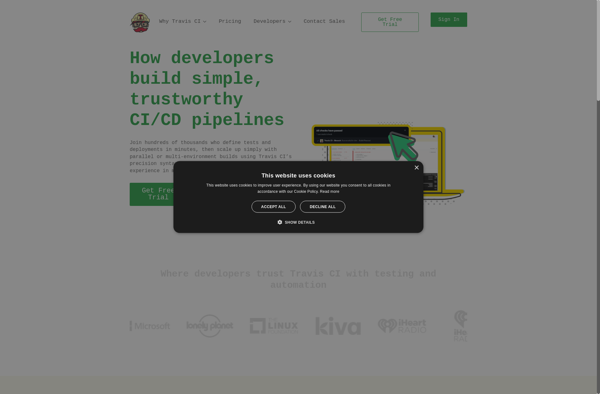
CircleCI
CircleCI is a continuous integration and delivery platform designed to help developers build, test, and deploy applications with speed and confidence. It provides cloud-based infrastructure for running automated jobs in Linux containers, allowing code to be built, tested, and delivered rapidly and reliably.Some key features of CircleCI include:Automated building, testing...
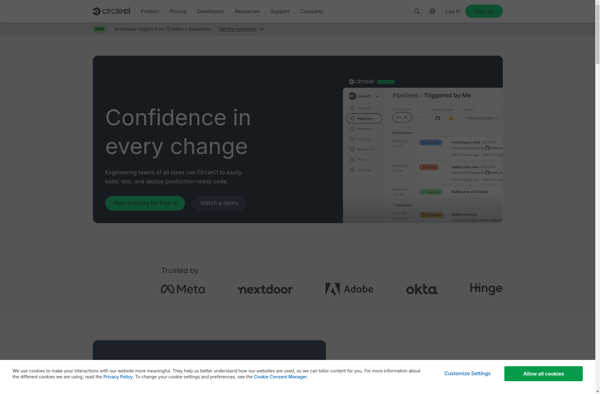
JetBrains TeamCity
JetBrains TeamCity is a continuous integration and continuous delivery server developed by JetBrains for software development teams. It automates building, testing, and deploying applications to help streamline the software development lifecycle.Some key features of TeamCity include:Customizable build configurations and build chains to automate compiling, running tests, generating reports, deploying applications,...
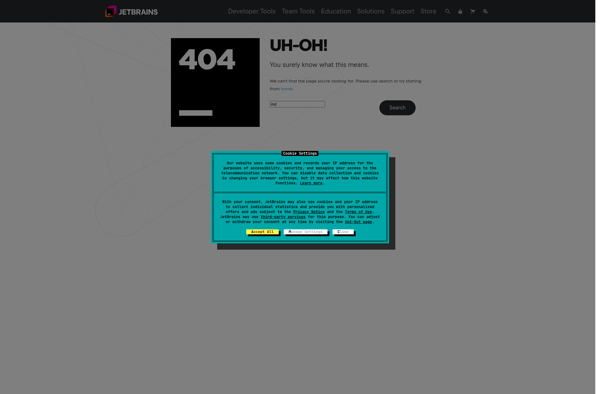
Octopus Deploy
Octopus Deploy is an automated deployment server designed to simplify the process of deploying applications and infrastructure across multiple environments and servers. Here are some key things to know about Octopus Deploy:- It provides a centralized UI and API to manage and track deployments across dev, test, staging, and production...
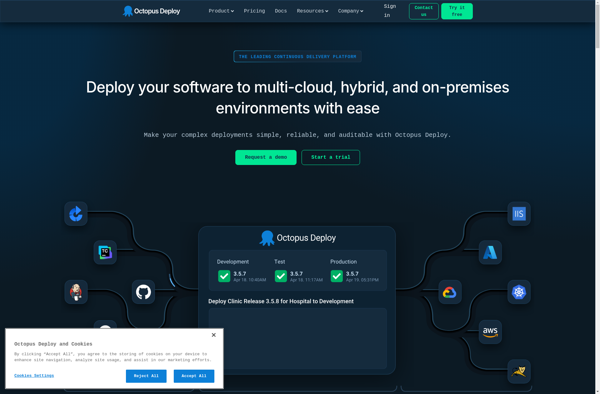
Earthly
Earthly is an open-source build automation tool designed specifically for monorepo-style codebases. It provides developers a simple way to define their build workflows and dependencies in a declarative Earthfile, then handles executing builds efficiently.Key features of Earthly include:Automatic parallelization - Earthly analyzes dependencies and runs independent build steps in parallel...
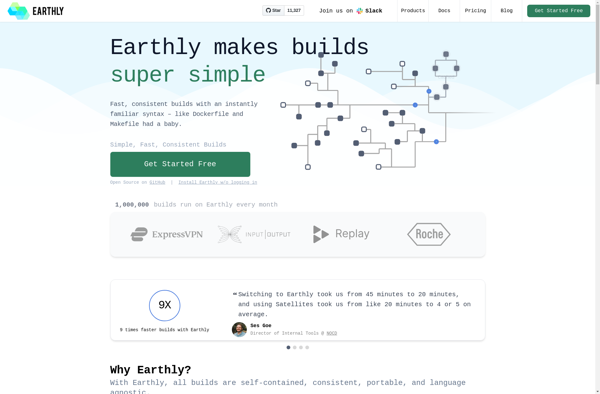
Codeship
Codeship is a cloud-based continuous integration and delivery service that helps development teams test, build and deploy their code quickly and efficiently. Some key features of Codeship include:Fully automated build, test and deployment pipelinesIntegration with GitHub, Bitbucket and GitLab for easy code hosting and managementParallel testing for faster test executionBuilt-in...
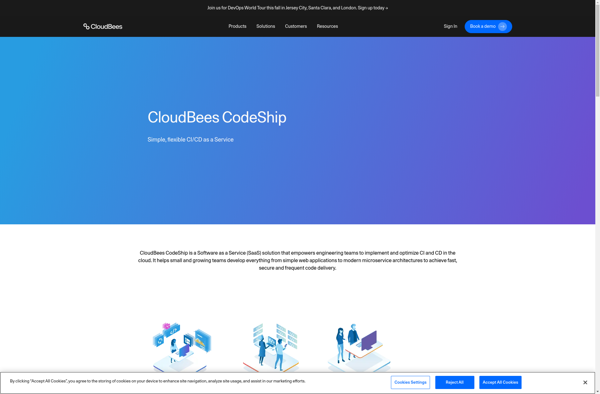
Bamboo Continuous Integration
Bamboo is a continuous integration and continuous delivery server developed by Atlassian. It allows software development teams to automate building, testing and deploying applications.Key features of Bamboo include:Automated builds and tests - Automatically run builds and tests whenever code is committed to keep the team informed of integration issues.Release management...
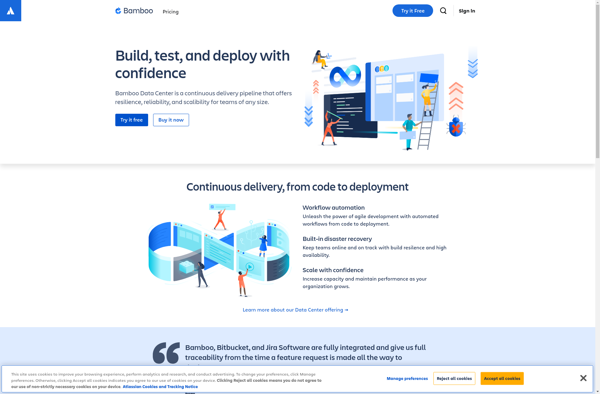
Azure DevOps
Azure DevOps is a Microsoft cloud-based collaborative development environment that supports Git repositories, Kanban boards, extensive automated builds, load testing, release management and application analytics. Key capabilities include:Version control with Git repositories for source code and integration with Visual Studio and EclipseAgile planning and tracking using Kanban boards with configurable...
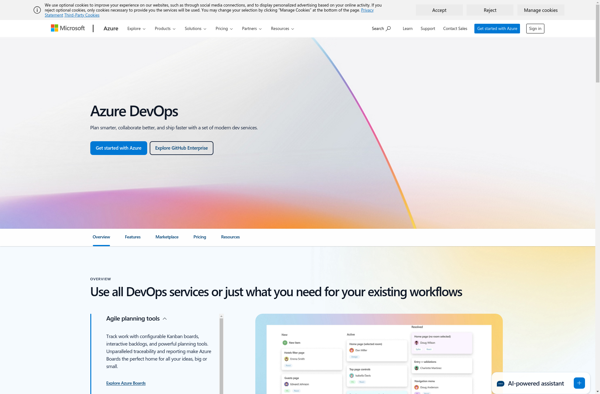
Buildbot
Buildbot is an open-source continuous integration and continuous delivery application that allows software development teams to automate the build, test, and release processes. It provides a customizable workflow engine that allows you to define your build steps, run tests, generate reports, and integrate with version control systems.Some key features of...
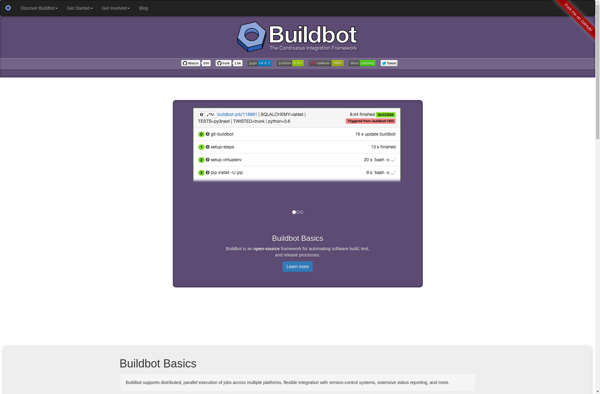
Drone.io
Drone.io is an open source continuous delivery platform built with Docker that allows developers to build, test, and deploy code easily and efficiently. Some key features and benefits of Drone.io include:Simple setup using a Docker container and YAML-based configuration pipelineSupports building and testing code written in all major languages like...
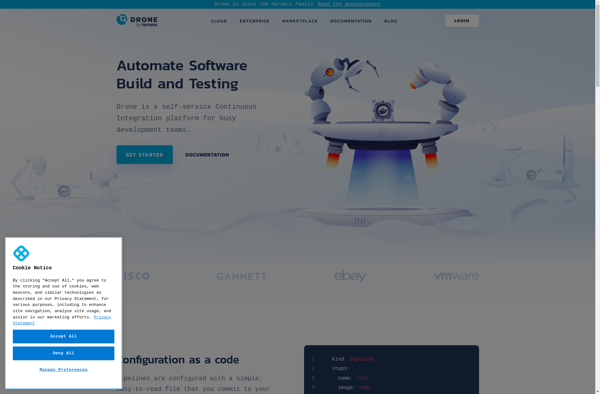
Percy by BrowserStack
Percy is a visual testing and review platform used to automate visual reviews in web development and catch UI issues before code gets deployed to production. It integrates seamlessly with GitHub pull requests to let developers preview their work and get visual reviews done faster.Key features of Percy include:Visual diffing...

Nevercode
Nevercode is a cloud-based mobile application development and hosting platform designed to help businesses, organizations, and developers rapidly build, deploy and manage mobile apps without needing to write any code.Key features of Nevercode include:Intuitive drag-and-drop interface for designing responsive app layouts for iOS and Android.Pre-made app templates and components for...
